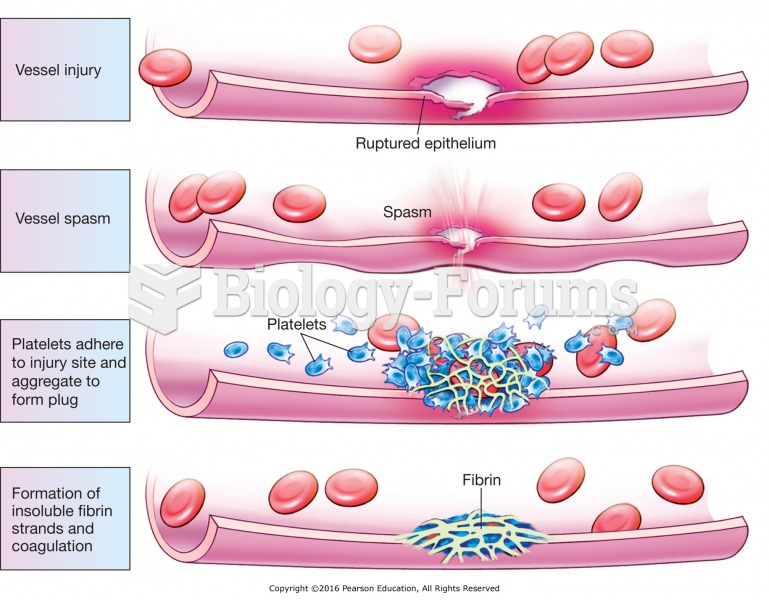|
|
|
If you could remove all of your skin, it would weigh up to 5 pounds.
The cure for trichomoniasis is easy as long as the patient does not drink alcoholic beverages for 24 hours. Just a single dose of medication is needed to rid the body of the disease. However, without proper precautions, an individual may contract the disease repeatedly. In fact, most people develop trichomoniasis again within three months of their last treatment.
Between 1999 and 2012, American adults with high total cholesterol decreased from 18.3% to 12.9%
Most strokes are caused when blood clots move to a blood vessel in the brain and block blood flow to that area. Thrombolytic therapy can be used to dissolve the clot quickly. If given within 3 hours of the first stroke symptoms, this therapy can help limit stroke damage and disability.
Increased intake of vitamin D has been shown to reduce fractures up to 25% in older people.
 Breast cancer. Notice the tumor growing within a lactiferous gland, which occurs in infiltrating duc
Breast cancer. Notice the tumor growing within a lactiferous gland, which occurs in infiltrating duc
 Basic sliding effleurage using the thumb gets into the small spaces between the metatarsals of the ...
Basic sliding effleurage using the thumb gets into the small spaces between the metatarsals of the ...





